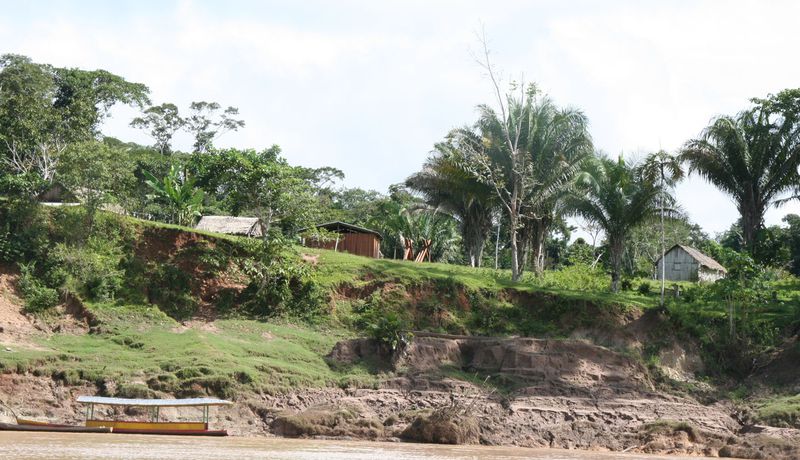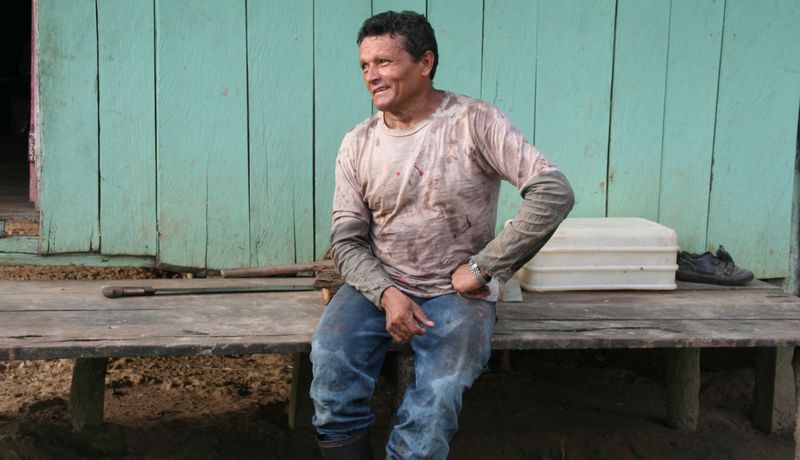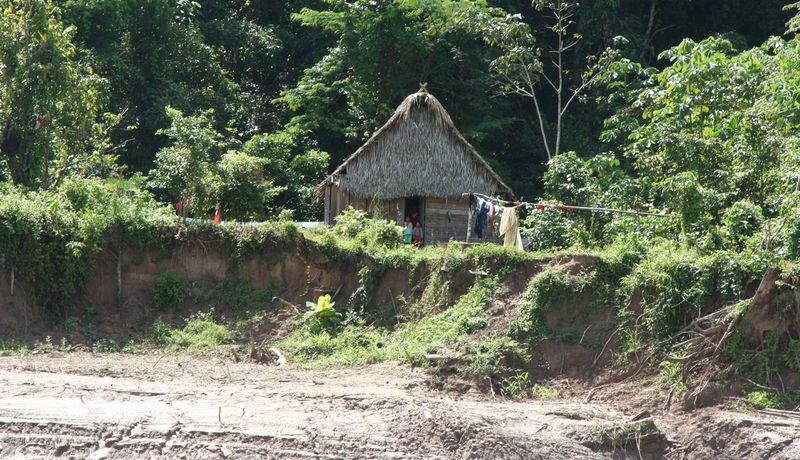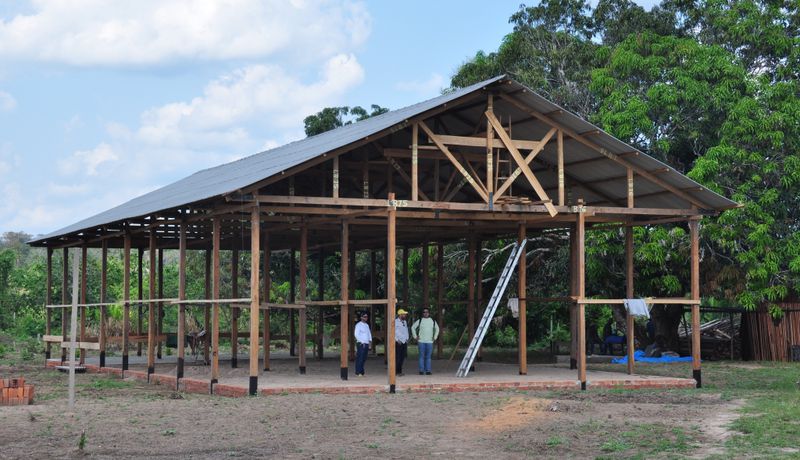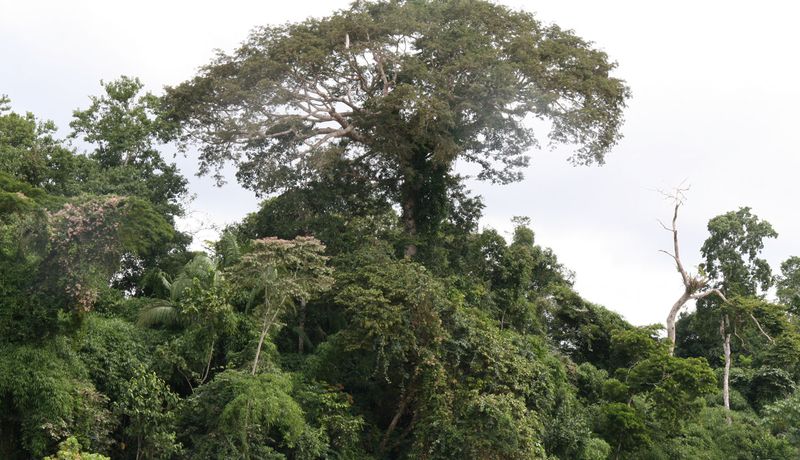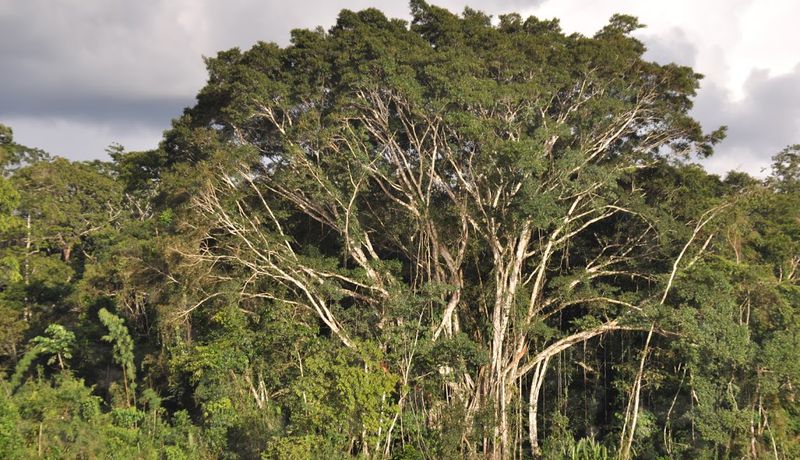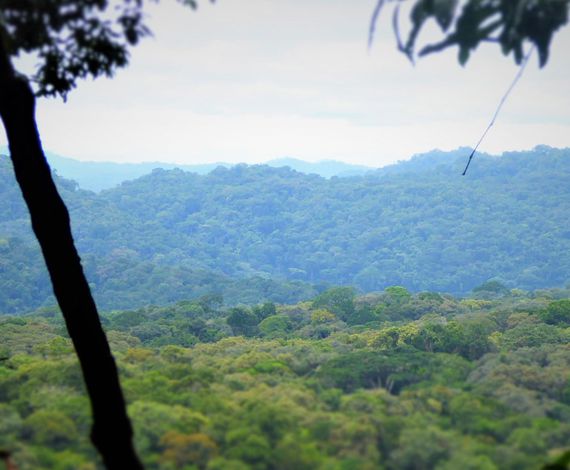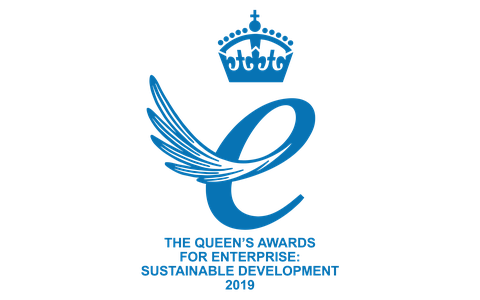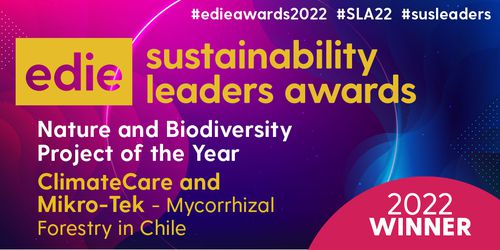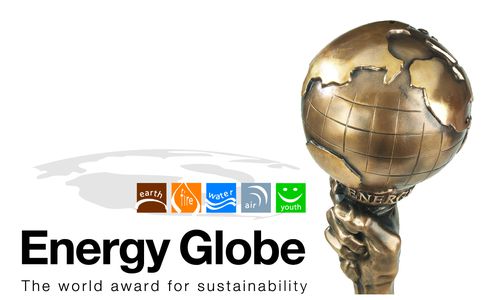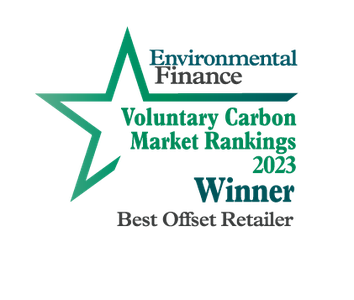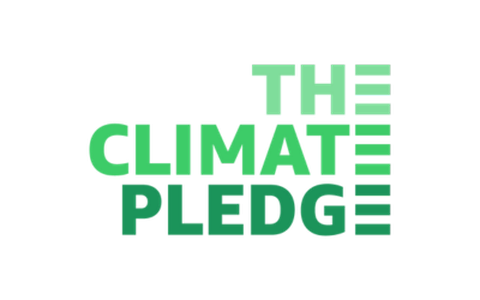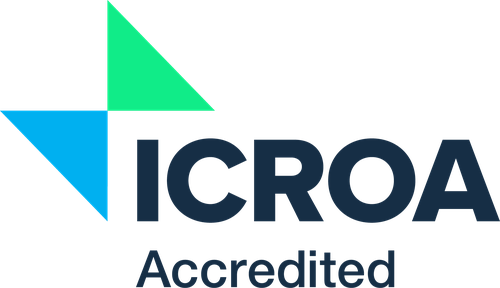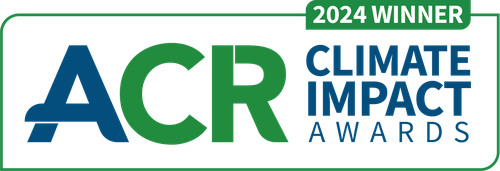90% of Brazil’s Acre state is forested, but current rates of destruction mean by 2030 this could decline to 65%.
This collection of three Reducing Emissions from Deforestation and Forest Degradation (REDD+) projects aims to prevent deforestation across 105,000 hectares of pristine rainforest in the Amazon basin, protecting some of the world’s most biodiverse habitats.
With the support of carbon finance, the projects work with communities and local groups to help protect ecosystem services while providing alternative models of economic development which avoid destruction of the forest.
Granting land tenure and providing agricultural training to prevent deforestation and promote sustainable economic livelihoods.
Tropical forests are the most biodiverse habitats on Earth, home to a majority of the Earth's species of plants and animals.
In addition to delivering approximately 360,000 tonnes of emission reductions each year, the project delivers a number of other sustainable development benefits. These include:
- No poverty: Strengthening business capacity through training, and plans to provide a boat for exporting goods, will further help communities lower their transaction costs and increase market access for their crops.
- Zero hunger: Families have been trained and will continue to have access to courses on how to grow bananas, chickpeas, cassava and corn; artisanal processing of fish; rearing organic pigs; and using rotational cattle pastures. The goal is to increase yields and help make these agricultural activities more profitable.
- Life on land: The project areas are part of a key habitat for several endangered and vulnerable species, while the proximity to other large intact forest areas increases overall habitat connectivity. The International Union of Conservation of Nature (IUCN) has identified a variety of plant and animal species in Acre that are either vulnerable or endangered, including the Woolly Monkey and Black-faced Monkey (both endangered), Goeldi’s Monkey (vulnerable), and 16 species of flora that are endangered or vulnerable but are currently protected through this project. Within the Acre project area specifically, Scarlet Macaw, Amazon River Dolphins, Squirrel Monkeys, and Great White Herons have also been observed.
- Good health and well-being: Communities living within the Acre project area have historically lacked access to adequate health services as a result of the remote location. To improve community livelihoods, the project has facilitated doctor visits from local towns on a periodic basis, known as the Itinerant Health Programme. The projects also plan to build local health centres and dental clinics, providing consistent local community access to improved medical facilities and services. The clinics will hire and train a local community member to provide basic first aid, and a small pharmacy will also be provided for basic medicine distribution.
- Quality education: The projects have hosted agricultural courses to support diversification of agricultural production and household income, while raising awareness of the benefits of avoided deforestation. To raise awareness of the importance of conservation in schools, lessons are being incorporated into educational programmes. The project aims to improve the quality of education for local youth through school infrastructure developments, such as building new classrooms to offer separate learning spaces for different grades.
- Decent work and economic growth: The projects have recruited workers from the local area to assist with the forest carbon inventory, regional deforestation and land-use modelling. Jobs are also created through the installation and monitoring of wildlife via wildlife camera traps and local project management, assisting delivery of project goals.
- Life below water: Located on the Purus, Jurua and Valparaiso Rivers, important tributaries of the Amazon, the projects incorporate important inland water ecosystems that provide benefits such as pollution and nutrient absorption and recycling, flood management, drinking water supply, and mitigation against the impacts of climate change. The Acre project is helping to rehabilitate degraded areas along the riverbank through reforestation activities, helping to combat riverbed erosion and polluting sediment levels in the water, while enhancing overall protection of watersheds through decreased deforestation.
Our goal is to deliver 1 billion tonnes of emissions reductions by 2030
600+ projects have been supported by Climate Impact Partners
100+ million tonnes of emissions reduced through carbon finance
As one of the families in the project area, Benedito Silva's family spent some of their earnings on a boat to make the four hour trip to the nearest town, Manoel Urbano, to sell their produce. The project is working with families to go through the complex legal process to give them land title, and offer agricultural training to improve yields and diversify income.
Delivering towards the Global Goals

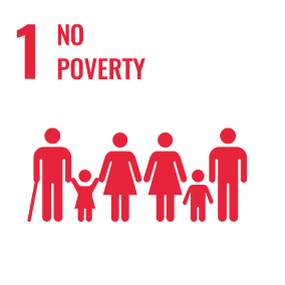
No Poverty
End poverty in all its forms everywhere
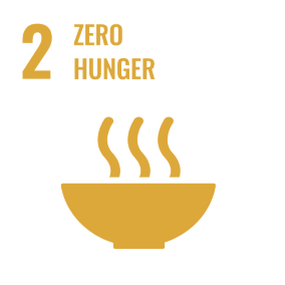
Zero Hunger
End hunger, achieve food security and improved nutrition
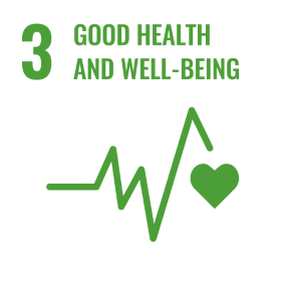
Good Health and Wellbeing
Ensure healthy lives and promote well-being for all at all ages
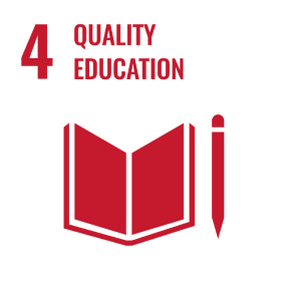
Quality Education
Ensure inclusive and equitable quality education and promote lifelong learning opportunities
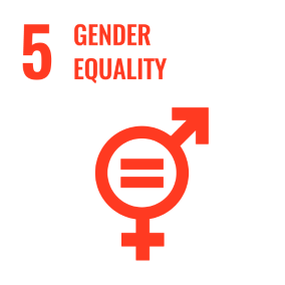
Gender Equality
Achieve gender equality and empower all women and girls
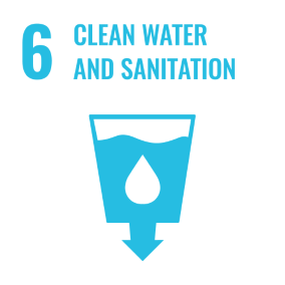
Clean Water and Sanitation
Ensure access to water and sanitation for all
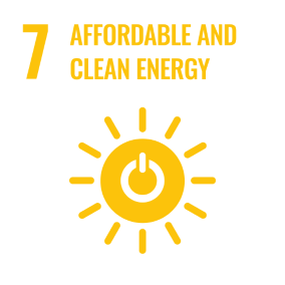
Affordable and Clean Energy
Ensure access to affordable, reliable, sustainable and modern energy
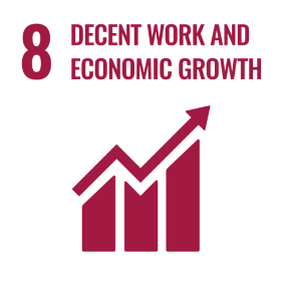
Decent Work and Economic Growth
Promote inclusive and sustainable economic growth, employment and decent work for all
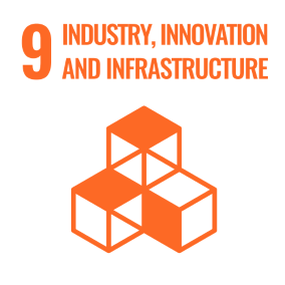
Industry, Innovation and Infrastructure
Build resilient infrastructure, promote sustainable industrialization and foster innovation
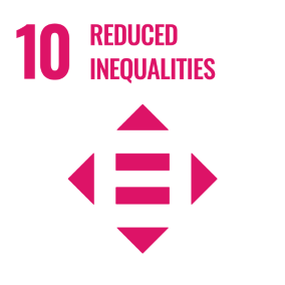
Reduced Inequalities
Reduce inequality within and among countries
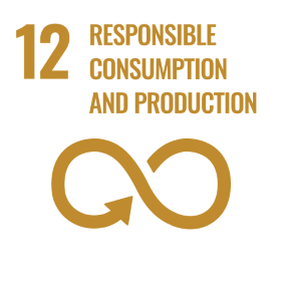
Responsible Consumption and Production
Ensure sustainable consumption and production patterns
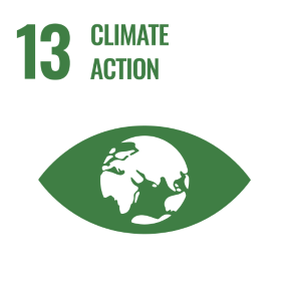
Climate Action
Take urgent action to combat climate change and its impacts
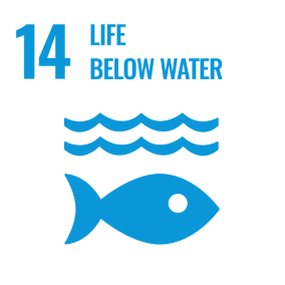
Life Below Water
Conserve and sustainably use the oceans, seas and marine resources
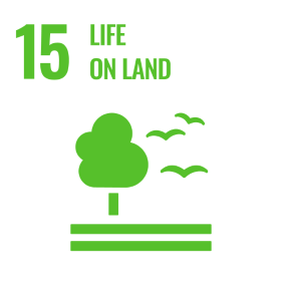
Life on Land
Sustainably manage forests, combat desertification, halt and reverse land degradation, halt biodiversity loss
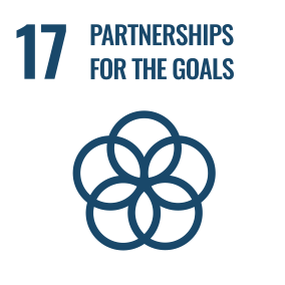
Partnerships for the Goals
Revitalize the global partnership for sustainable development


Supporting our projects delivers on multiple UN Sustainable Development Goals (SDGs). You can read more on the Goals below.
Learn more about the global goalsNext Steps
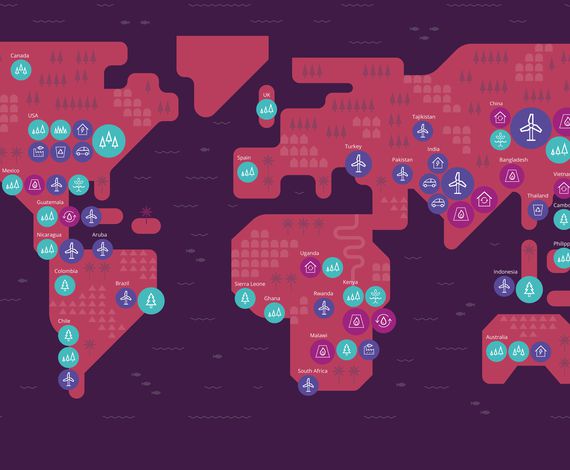
Explore our projects
Explore our range of projects across the globe: nature based solutions, health and livelihoods and sustainable infrastructure.
Explore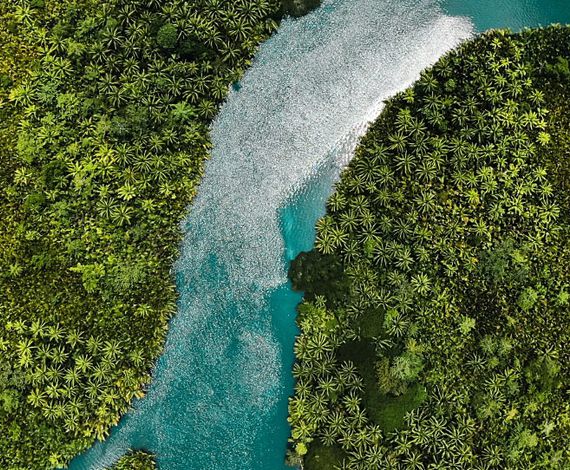
Business Solutions
We are the leading solutions provider for carbon offsetting, net zero, carbon neutrality and carbon finance project development.
Read more
